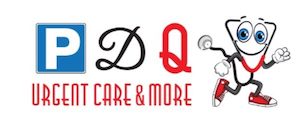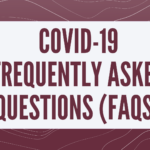Top Five Covid FAQ’s- Just the Facts for Orange County
Mark Twain once said there were three types of lies… “Lies, Damned Lies, and Statistics”…meaning we can bend statistics into verifying wrong conclusions.
Mr. Twain actually modified a quote by T.H. Huxley—“There are three types of liars- Liars, Damned Liars, and Experts.”
The more I research Covid and its physiology and treatment, this quote takes on great meaning–and accuracy. For once, as a previous blog pointed out—even our experts are usually flat out wrong.
An example is the fact that our new Covid cases from testing at our three centers shows a significant spike, as we reported two weeks ago. They have not yet come down. This is despite reports from the OC Health Department showing new cases are flat.
Explanation?
Clearly either Caduceus encourages more testing, giving us more cases- or –
Caduceus patients really know how to party.
I’m going with the former. I pray a third possibility, cases through the health department are being under reported, is out of the question.
We are in the midst of a SURGE in cases.
We are NOT near a safe level of positive cases.
As tired of this as we all are, we cannot let down our guard and assume the worst is over.
Using the tenet that “you can only believe what your eyes see,” let’s use actual scientific data to answer the five most common FAQ’s we are receiving.
1. If masks and distancing work, why get tested?
2. Is it now safe to eat at restaurants? Bars? To fly?
3. How long will my antibodies last?
4. When I hear I should quarantine, what exactly does that entail?
5. With all the cases Caduceus has treated, what are the most effective therapies?
1. If masks and distancing work, why get tested?
Even the N95 masks fail 5% of the time. Typical cloth masks seen everywhere are 85% effective in blocking the virus, meaning if you are near someone Covid positive there is a 15% chance the virus gets past the masks.
Masks work. Just not 100%.
Many studies confirm that while social distancing at six feet apart prevents transmission of 80% of the virus, the combination of a sneeze, a cough, singing, or a slight breeze in the air can aerosolize the virus and allow it to travel 40 feet or more.
So the X’s on the floor six feet apart do work. Just not 100%.
Hence the need for regular testing- preferably a PCR nasal swab. It adds one more layer of protection. It’s arguably safer to be at a Sunday BBQ with ten people who all tested negative that week, than at a restaurant table with three people untested.
KNOW IF YOU ARE CONTAGIOUS.
Wear masks, distance six feet apart and avoid super-spreader events. Regular frequent testing is literally a life-saving strategy.
In the past three weeks 40% of our positive cases had no symptoms. That’s right. They were spreading the virus and did not know they were contagious.
We cannot assume people with no symptoms are not contagious.
2. Is it now safe to eat at restaurants? Bars? To fly?
No.
Not the answer you wanted to hear right?
A study recently published in Morbidity and Mortality Weekly Report, a respected journal, found adults with positive SARS-CoV-2 test results were twice as likely to have reported dining at a restaurant as those with negative SARS-CoV-2 test results. That went for indoor OR outdoor dining.
The reason? When eating at a restaurant, patrons take off their masks. They sit closer than six feet apart. And most diners do not know if they are carrying Covid. Fortunately, the restaurants that have contracted with Caduceus for testing do test their chefs and wait staff on a regular basis. When they do test positive, it’s almost always from an infected diner; remember the statistic 40 % of our positive cases are with NO symptoms. A diner with Covid that has not yet shown symptoms will infect the waiters- despite the mask worn by the waiter -15 % of the time. This applies to bars as well.
The same science applies to air travel. Despite filtered air, and meticulous cleaning, there are just too many people in a confined area. Some flights do require a negative PCR nasal swab, which is reassuring. Until that is standard procedure, “ix-nay on anes-play.”
3. How long will my antibodies last?
If you are one of the lucky ones to test positive for the Holy Grail of antibodies -IgG-it is likely you are immune from Covid 19. But how long does that immunity last?
We have had 2 patients where it only lasted four weeks. We have had many patients where it is still showing up after six months (which is as long as we have been able to test for it). In Asia and Europe, data tells us to expect IgG to stay active for 2-12 months–a huge variance.
That’s why we advise a monthly antibody test if you are antibody positive. If you are immune, you still need to wear a mask, social distance, and avoid super-spreader events. But you can breathe a little easier knowing you’re IgG positive.
For example, we have had ZERO cases of Covid in people IgG positive. And this comprises a sample of hundreds of patients. IgG appears to be performing as advertised.
Another Mark Twain quote is “If you don’t read the newspaper, you’re uninformed. If you read the newspaper, you’re misinformed.”
Never has a century-old saying been more accurate. Our team spends hours a day reading, researching, and surfing dozens of publications, and are incredulous at the misinformation floating out there.
For example, let’s look at #4…
When I hear I should quarantine, what exactly does that entail?
There are two times to quarantine:
-When you test positive
-When you are tested because you had close contact
In both cases, you need to quarantine until you swab negative. Yes, we are aware the local health department and the CDC do not require a test of cure. That is the misinformation we are talking about.
The evidence for that advice is weak.
Let’s look at the White House saga. The President was “cleared” of Covid using CDC guidelines of 10 days without symptoms. But many infectious disease centers advocate for a 20 day quarantine. Other academic centers match our advice, insisting on weekly swabs until negative.
Our experience tells us the average time to swab negative after a positive swab is three weeks, confirming the 20 day recommendation. The weekly swabs until negative rule is valid and should be the standard.
Why does the CDC stick with the 10 day rule? Admittedly there is data suggesting the virus is most contagious the first week of the infection. And that only a small number of patients stay infectious longer. Yet they also admit they stopped advising the test-of-cure (re-swab) due to a shortage of tests.
At Caduceus, we have no shortage of tests. We want our patients to be SURE they are not contagious .A positive swab means there is active virus and that virus should be quarantined until gone.
What’s the saying about “the proof being in the pudding?” Under the CDC guidance, numbers are spiking across the country. Clearly we need a more aggressive pudding…I mean strategy.
A larger problem is how people are quarantining. Very reasonable people are balking at standard quarantine protocol. This is one of the biggest issues comparing the flat curve of Asia and Italy. We simply aren’t being smart about our quarantine protocol.
Pushing aside the patients that shockingly refuse to stay home and even go to work after a positive swab, we need better education on how to quarantine.
If you live with roommate or family that IS infected:
-Stay in your own room.
-Use a dedicated bathroom.
-Food delivery contact-less is left at door.
-To move about the house or go into the yard, the house should be empty, or the residents should be out of sight of the infected person. That means NOT watching TV in the same room as the family, NOT eating at the same dinner table, NOT “hanging around” other household members.
I know it is very difficult. Do NOT be misinformed. Quarantine correctly.
It’s only three weeks.
We desperately need to get the number of new cases down to lower the death and hospitalization rate until a vaccine is available.
5. With all the cases Caduceus has treated, what are the most effective therapies?
This is straightforward, having used dozens of different therapies on our 500 cases we have actively treated.
Five stand out as being especially effective:
-REST; yes it’s that simple. People who stay in bed, on the couch, or recliner and rest get better faster than those that get about and try to exercise. This is a great time to binge The Sopranos complete series.
-Pulmonary hygiene—ideally buy a pulse ox (drugstore/Amazon), nebulizer, spirometer, and find a partner with a mask to pound your chest. Mucous is our nemesis; we are aggressive in getting the mucous out of your chest. It has kept many of our patients out of the hospital.
-Budesonide (Pulmicort) daily as a preventive med to keep airways open, and Albuterol as an abortive inhaler when cough or shortness of breath hits. It has worked in nearly everyone with lung symptoms.
-Decadron orally in patients who are not improving or worsening despite best practices. Initially meant for inpatient use, we have found excellent results safely to help prevent the hospital in the first place.
-For those few patients who have needed to be admitted to hospital, both Remdesivir and convalescent plasma have been very effective to neutralize the virus.
In Summary:
-Test. Test. Test.
-Know if you’re contagious (get swabbed regularly).
-Know if you’re immune (get antibody tested regularly).
-If you have been exposed or are positive, self-quarantine by the book.
-Read the newspapers, but be skeptical.
Mr. Twain had another saying worth modifying—
“The two most important days in your life are the day you are born and the day you find out why.”
We can take some poetic license and say:
The two most important days in 2020 are the day you test Covid positive…and the day you test negative.
Gregg DeNicola MD
Chief Medical Officer
Caduceus Medical Group



